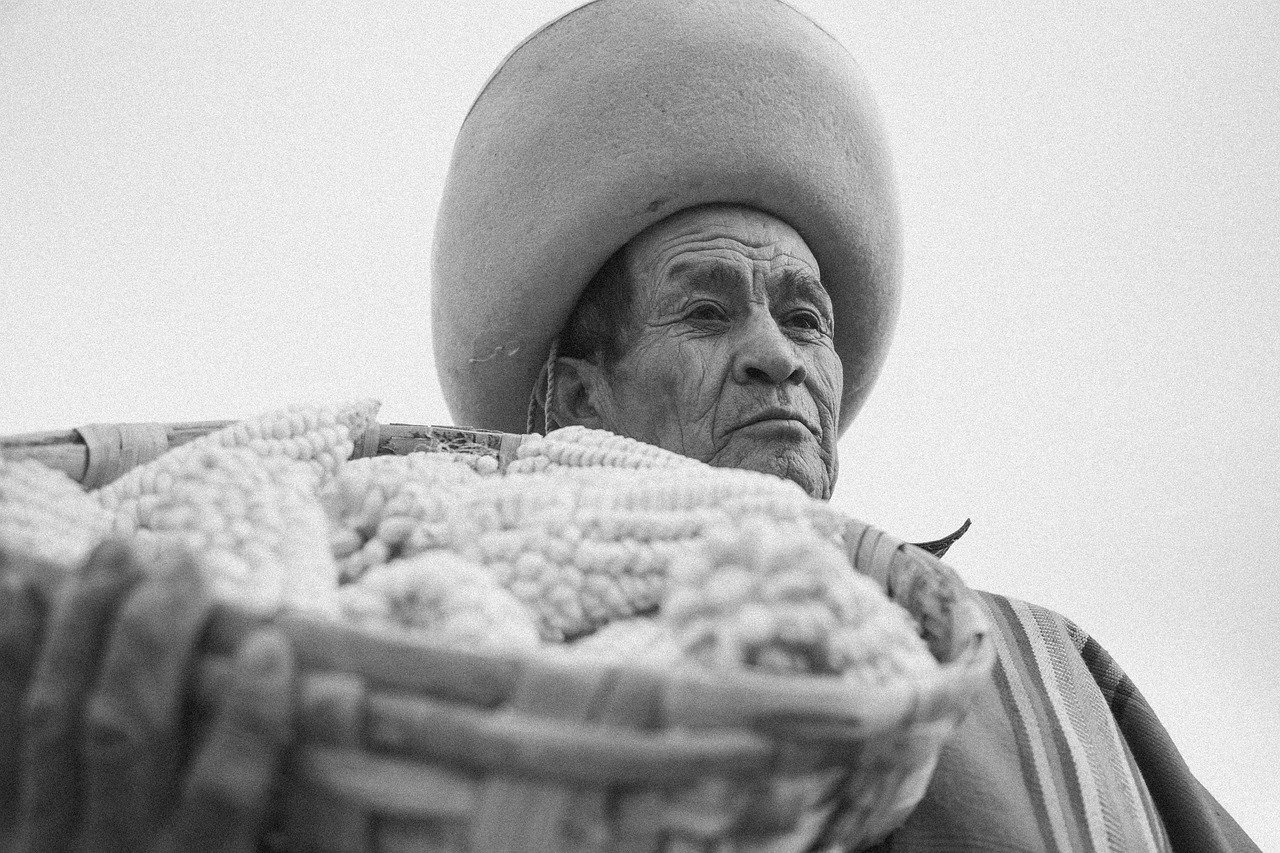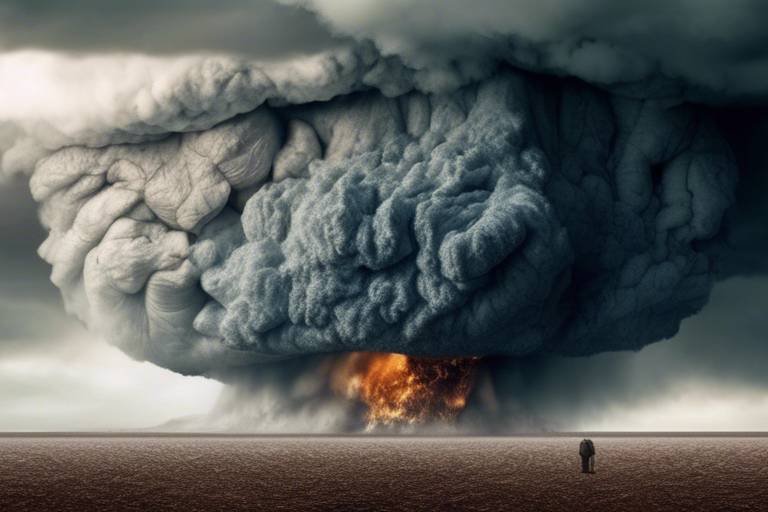Philosophical Perspectives on Climate Change
Climate change is not just an environmental crisis; it is a profound philosophical dilemma that compels us to question our values, responsibilities, and the very essence of our existence. As we grapple with the escalating impacts of climate change, we must consider the ethical implications of our actions and the moral frameworks that guide our decisions. This exploration is not merely academic; it is essential for shaping our responses to one of the most pressing challenges of our time. How do we define our responsibilities to the planet, to each other, and to future generations? The answers lie within various philosophical perspectives that offer valuable insights into our relationship with the environment.
At the heart of this discussion is the realization that our actions today have far-reaching consequences. The philosophical lens allows us to dissect the complexities of climate change, revealing the intricate web of human agency, ethical obligations, and the interconnectedness of all life forms. As we delve into these perspectives, we will uncover how different ethical frameworks—such as utilitarianism, deontology, and virtue ethics—shape our understanding of what it means to act responsibly in the face of climate change. The question is not just what we can do, but what we ought to do in order to foster a sustainable future.
Furthermore, the philosophical discourse on climate change extends beyond individual actions to encompass collective responsibilities. It prompts us to consider the role of governments, corporations, and institutions in mitigating environmental harm. Are we merely passive observers, or do we possess the agency to enact meaningful change? As we navigate this terrain, we must confront uncomfortable truths about privilege, power, and the unequal burdens borne by different communities around the globe. The philosophical inquiry into climate change invites us to reflect deeply on these issues, urging us to transcend self-interest and embrace a more holistic approach to environmental stewardship.
In this article, we will explore various philosophical perspectives that illuminate the ethical dimensions of climate change. From the concept of intergenerational justice, which challenges us to think about our obligations to future generations, to the emerging idea of nature's rights that seeks to redefine our legal and moral obligations to the environment, each viewpoint offers a unique lens through which to understand our predicament. By engaging with these ideas, we can better appreciate the moral weight of our choices and the urgency of our actions. The journey through these philosophical landscapes is not just about understanding; it is about awakening a sense of responsibility that can drive us towards effective climate action.
As we embark on this exploration, let us keep in mind that philosophy is not merely an abstract discipline. It is a practical tool that can guide our actions and inspire us to create a more just and sustainable world. The philosophical perspectives on climate change challenge us to rethink our relationship with the Earth and with each other, urging us to act not just for ourselves, but for the generations yet to come. So, are you ready to dive into this philosophical journey? Let's uncover the profound insights that await us!
- What is the significance of philosophical perspectives on climate change?
Philosophical perspectives help us understand the ethical implications of our actions and guide our responsibilities towards the environment and future generations.
- How do different ethical frameworks influence climate action?
Different frameworks, such as utilitarianism and deontology, shape our understanding of moral responsibility and inform our decisions regarding environmental stewardship.
- What is intergenerational justice?
Intergenerational justice refers to the moral obligations we hold towards future generations, emphasizing the importance of sustainable practices and ethical considerations in our decisions today.
- What are the rights of nature?
The rights of nature is an emerging concept that advocates for granting legal personhood to ecosystems, transforming our approach to environmental protection and climate justice.

Ethical Frameworks in Climate Action
When we think about climate change, it’s not just about rising temperatures and melting ice caps; it’s a profound ethical dilemma that challenges our moral compass. At the heart of this dilemma lies the question: What is our moral responsibility to the planet and future generations? Different ethical frameworks provide us with various lenses through which we can examine our duties towards the environment. Two prominent theories that often come into play are utilitarianism and deontology.
Utilitarianism, which emphasizes the greatest good for the greatest number, prompts us to consider the overall benefits and harms of our actions. For instance, when a government decides to invest in renewable energy sources, it is not merely a financial decision but a moral one. The shift to sustainable energy can significantly reduce greenhouse gas emissions, leading to a healthier planet and better quality of life for countless individuals. Here, the utilitarian perspective urges us to weigh the long-term benefits of such decisions against short-term economic gains. However, one could argue that this approach risks overlooking the rights of marginalized communities who may be disproportionately affected by climate policies.
On the other hand, deontological ethics focuses on the morality of actions themselves rather than their consequences. This framework posits that we have a duty to act in ways that respect the rights of all beings, including our environment. From this viewpoint, harming the planet is inherently wrong, regardless of the potential benefits that might arise from such actions. Deontologists might argue that we have a moral obligation to protect endangered species and ecosystems, as these entities have intrinsic value. This perspective can be quite powerful, as it encourages individuals and nations to take a stand for environmental justice, even when it may not be the most economically advantageous choice.
As we navigate these ethical waters, it becomes clear that both frameworks have their merits and limitations. How do we reconcile these different approaches? One possible solution is to adopt a more integrated ethical stance that combines elements from both utilitarianism and deontology. By doing so, we can create policies that not only aim for the greatest good but also uphold moral duties to protect our natural world. For instance, a comprehensive climate action plan could prioritize renewable energy investments while also ensuring that affected communities receive support and compensation.
Moreover, the ethical implications of climate change extend beyond individual actions to global responsibilities. Developed nations, which have historically contributed the most to greenhouse gas emissions, face a moral obligation to assist developing nations in their climate adaptation and mitigation efforts. This raises questions about equity and fairness in climate action, inviting us to reflect on the interconnectedness of our global community.
In summary, the ethical frameworks we choose to adopt in climate action shape our understanding of responsibility and agency. Whether through the lens of utilitarianism, deontology, or a combination of both, our decisions will have lasting impacts on the planet and future generations. As we grapple with these complex issues, it’s crucial to engage in ongoing dialogue and reflection to ensure that our climate actions align with our moral values.

Intergenerational Justice
When we talk about , we're diving into a profound moral obligation that transcends our immediate needs and desires. It's about recognizing that our actions today will ripple through time, influencing the lives of future generations. Imagine a tree planted today; it may not bear fruit in our lifetime, but it provides shade, oxygen, and beauty for those who come after us. This metaphor encapsulates the essence of intergenerational justice—our responsibility to cultivate a sustainable world for those who will inherit it.
At the heart of this concept lies the ethical principle that we must consider the rights and well-being of future individuals as we make decisions today. This isn't just about environmental sustainability; it's a comprehensive approach that includes social equity, economic stability, and cultural integrity. We need to ask ourselves: Are we leaving behind a world that is better or worse than the one we inherited? The answer to this question can shape policies and practices that ensure our legacy is one of care and responsibility.
One of the critical aspects of intergenerational justice is the idea of sustainable practices. By implementing sustainable practices now, we can mitigate the adverse effects of climate change, ensuring that future generations have access to clean air, water, and natural resources. For instance, investing in renewable energy sources today not only reduces our carbon footprint but also lays the groundwork for a cleaner, more sustainable energy future. This proactive approach can be viewed as a form of investment—not merely in technology or infrastructure, but in the very quality of life for those who will come after us.
Moreover, we must consider the ethical implications of our environmental decisions. Every choice we make—whether it's a personal decision to reduce waste or a political decision to enforce stricter emissions regulations—echoes into the future. For example, the Paris Agreement aims to limit global warming and its effects on future generations. By committing to such agreements, we are acknowledging our responsibility to those who have not yet been born, ensuring they inherit a planet capable of sustaining life.
To further illustrate the principles of intergenerational justice, consider the following table that outlines the key responsibilities we hold towards future generations:
| Responsibility | Description |
|---|---|
| Sustainable Resource Management | Ensuring that natural resources are used wisely and conserved for future generations. |
| Climate Action | Taking steps to mitigate climate change and its impacts on future societies. |
| Social Equity | Promoting fairness and justice in resource distribution to avoid burdening future generations with debt or inequality. |
| Cultural Preservation | Protecting cultural heritage and knowledge that enrich future societies. |
In conclusion, the principle of intergenerational justice compels us to act with foresight and compassion. It challenges us to think beyond our immediate gratification and consider the long-term effects of our choices. Just as we would not want to inherit a world plagued by environmental degradation and social injustice, we must strive to leave a legacy that future generations can be proud of. After all, every decision we make today is a seed planted for tomorrow. Will it grow into a thriving tree or wither away? The choice is ours.
- What is intergenerational justice? Intergenerational justice is the ethical principle that emphasizes our responsibility to ensure that future generations have access to the same opportunities and resources that we do today.
- Why is intergenerational justice important in climate change? It is crucial because the decisions we make regarding climate action today will have lasting impacts on the environment and quality of life for future generations.
- How can individuals contribute to intergenerational justice? Individuals can contribute by adopting sustainable practices, advocating for policies that protect the environment, and educating others about the importance of long-term thinking.

Rights of Nature
The concept of is a revolutionary idea that challenges our traditional views on environmental protection. Instead of viewing nature merely as a resource to be exploited, this philosophy advocates for recognizing ecosystems as entities with inherent rights. Imagine if rivers, forests, and mountains had legal standing—this would not only transform our approach to conservation but also redefine our relationship with the natural world. By granting legal personhood to nature, we shift the focus from human-centric exploitation to a more holistic understanding of our planet's ecosystems.
The implications of this shift are profound. For instance, if a river has the right to exist and flourish, then any actions that threaten its health—like pollution or dam construction—could be challenged in court. This approach empowers communities and environmental activists to defend the rights of nature, creating a legal framework that prioritizes ecological integrity over economic gain. In countries like Ecuador and Bolivia, legal recognition of nature's rights has already been implemented, setting a precedent for how we might address climate change and environmental degradation globally.
Furthermore, the Rights of Nature movement emphasizes the interconnectedness of all living beings. It resonates with Indigenous philosophies, which have long recognized the sacredness of nature. By integrating these perspectives, we can foster a deeper appreciation for biodiversity and the complex web of life that sustains us. This isn't just about saving a few endangered species; it's about acknowledging that our survival is inextricably linked to the health of the planet.
To better understand the Rights of Nature, consider the following key points:
- Legal Personhood: Nature is treated as a legal entity, allowing it to sue and be sued.
- Holistic Conservation: Focus shifts from individual species to entire ecosystems.
- Community Empowerment: Local communities gain the right to defend their natural environment.
- Interconnectedness: Recognizes the intrinsic link between humans and nature.
In conclusion, embracing the Rights of Nature could catalyze a significant shift in how we address climate change. By recognizing the legal rights of ecosystems, we foster a culture of respect and responsibility towards the environment. This paradigm shift not only benefits nature but also promotes a sustainable future for humanity. As we grapple with the consequences of climate change, it's crucial to consider how our legal and ethical frameworks can evolve to protect the planet for future generations.
What are the Rights of Nature?
The Rights of Nature is a legal framework that recognizes ecosystems as entities with legal rights, allowing them to be defended in court.
How does this concept impact environmental policies?
By granting legal personhood to nature, it shifts the focus of environmental policies from exploitation to conservation, prioritizing ecological health.
Where has the Rights of Nature been implemented?
Countries like Ecuador and Bolivia have recognized the Rights of Nature in their legal systems, serving as examples for others to follow.
How can individuals support the Rights of Nature?
Individuals can advocate for local and national policies that recognize the Rights of Nature, participate in community initiatives, and support organizations working towards environmental justice.

Indigenous Perspectives
When we talk about climate change, it's essential to pause and reflect on the invaluable insights offered by Indigenous cultures. These perspectives are not just about environmental stewardship; they embody a profound understanding of our interconnectedness with nature. Indigenous peoples have lived in harmony with their environments for centuries, cultivating a relationship characterized by respect, reciprocity, and responsibility. They view the Earth not merely as a resource to exploit but as a living entity deserving of care and protection.
One of the core tenets of Indigenous philosophies is the idea of kinship with nature. This concept emphasizes that all beings—whether human, animal, or plant—are part of a larger community. For many Indigenous cultures, the land is sacred, and every action taken must consider its impact on the entire ecosystem. This holistic view contrasts sharply with the often fragmented, exploitative practices of modern industrial societies. By embracing this interconnectedness, Indigenous peoples advocate for sustainable practices that honor the Earth and its cycles.
Moreover, traditional ecological knowledge (TEK) plays a critical role in how Indigenous communities approach environmental issues. TEK is a cumulative body of knowledge, practice, and belief that evolves through adaptive processes and is handed down through generations. It includes understanding local ecosystems, seasonal changes, and sustainable resource management techniques. For example, Indigenous fire management practices have been shown to reduce the risk of catastrophic wildfires while promoting biodiversity. These practices are not just ancient traditions; they are practical, effective strategies that modern society can learn from.
Indigenous perspectives also highlight the importance of intergenerational responsibility. Elders in these communities often speak of their duty to future generations, emphasizing that the decisions made today will affect the lives of those who come after us. This long-term view fosters a sense of accountability and encourages sustainable practices that prioritize the health of the planet. It's a reminder that climate change is not just a contemporary issue but a challenge that will echo through the ages.
However, despite their rich knowledge and practices, Indigenous communities often face significant challenges in having their voices heard in climate discussions. The marginalization and disenfranchisement of these groups can lead to a disconnect between their traditional practices and modern environmental policies. Recognizing and integrating Indigenous perspectives into climate action is not merely ethical; it is essential for creating effective and inclusive solutions.
Incorporating Indigenous viewpoints into climate change strategies can lead to more holistic and effective approaches. When we listen to and learn from Indigenous peoples, we can foster a more equitable and sustainable future. This collaboration can take many forms, from co-management of natural resources to policy advocacy that respects Indigenous rights and sovereignty.
Ultimately, the wisdom of Indigenous cultures offers profound lessons on living sustainably and harmoniously with our environment. As we grapple with the complexities of climate change, we must remember that these perspectives are not just an optional add-on to the conversation; they are vital to understanding how to move forward responsibly and ethically.
- What are Indigenous perspectives on climate change?
Indigenous perspectives emphasize interconnectedness with nature, sustainability, and the importance of traditional ecological knowledge. They advocate for responsible stewardship of the Earth, considering the impact of today's actions on future generations.
- How can Indigenous knowledge contribute to climate solutions?
Indigenous knowledge can inform sustainable practices and resource management techniques that have been honed over centuries. This knowledge can complement scientific approaches to create more effective and holistic climate solutions.
- Why is it important to include Indigenous voices in climate discussions?
Including Indigenous voices ensures that diverse perspectives are represented, leading to more equitable and effective climate policies. It also acknowledges the rights and sovereignty of Indigenous peoples, fostering respect and collaboration.

Western Philosophical Views
When we dive into Western philosophical traditions, it’s like peeling back layers of an onion—each layer revealing different perspectives on our relationship with the environment. At the heart of these discussions lies a profound question: What is our moral obligation towards nature? Thinkers from ancient Greece to contemporary philosophers have grappled with this issue, often contrasting the anthropocentric (human-centered) view with a more ecocentric (nature-centered) approach. For instance, philosophers like Aristotle and Kant have laid down frameworks that prioritize human rationality and ethical duties, suggesting that nature should serve human interests. However, this viewpoint has faced significant criticism, particularly in light of the current climate crisis.
One of the most pivotal shifts in Western thought came with the rise of Romanticism in the 18th and 19th centuries, which emphasized a deep emotional connection to nature. Thinkers such as John Muir and Henry David Thoreau advocated for a more harmonious relationship with the natural world, arguing that nature possesses intrinsic value beyond its utility to humans. This perspective has paved the way for modern environmental ethics, encouraging us to reconsider our place within the ecosystem.
Moreover, the Utilitarian approach, championed by philosophers like Jeremy Bentham and John Stuart Mill, focuses on the greatest good for the greatest number. This raises intriguing questions about climate change: How do we weigh the immediate benefits of industrialization against the long-term consequences for the planet? The utilitarian lens often leads to discussions about the trade-offs between economic growth and environmental sustainability, highlighting the complexities involved in crafting effective climate policies.
Another significant philosophical stance is found in Deontology, particularly in the works of Kant. This theory posits that actions should be judged based on whether they align with moral duties rather than their consequences. In the context of climate change, this raises the question of our moral obligations to future generations. Are we not duty-bound to preserve the planet for those who will come after us? This ethical framework compels us to act responsibly, regardless of the immediate benefits or costs.
As we navigate these philosophical waters, it’s crucial to recognize that Western views are not monolithic. They are often influenced by cultural, historical, and social contexts. For instance, the Environmental Justice movement has emerged as a response to the inequities faced by marginalized communities disproportionately affected by environmental degradation. This perspective encourages us to think critically about the intersection of ethics, race, and climate, reminding us that our philosophical inquiries must also address issues of justice and equity.
In summary, Western philosophical views on climate change are rich and varied, offering a tapestry of ideas that challenge us to rethink our relationship with the environment. From utilitarianism to deontology, each framework provides unique insights into our moral responsibilities. As we face the growing threat of climate change, these philosophical discussions are not merely academic; they are essential for guiding our actions and policies in the quest for a sustainable future.
- What is the main focus of Western philosophical views on climate change? Western philosophical views primarily focus on the moral obligations humans have towards nature, often contrasting anthropocentric and ecocentric perspectives.
- How does utilitarianism relate to climate change? Utilitarianism evaluates actions based on their outcomes, prompting discussions about the balance between economic growth and environmental sustainability.
- What role does intergenerational justice play in environmental ethics? Intergenerational justice emphasizes our duty to preserve the environment for future generations, highlighting moral responsibilities that transcend current benefits.
- How do Indigenous perspectives differ from Western views? Indigenous philosophies often emphasize interconnectedness and sustainability, offering valuable insights that contrast with the more utilitarian or individualistic approaches of Western thought.

Human Agency and Responsibility
When we talk about climate change, one of the most pressing questions that arises is about human agency and our responsibility in this unfolding crisis. Are we merely passive observers, or do we hold the reins of action? It’s a bit like being at the helm of a ship in turbulent waters; we can choose to steer towards calmer seas, or we can let the waves dictate our course. The reality is, our actions—or inactions—carry weight. This is where the concept of responsibility comes into play. It’s not just about recognizing that we have the power to make changes; it’s about understanding the moral implications of those changes.
Many argue that our individual choices are insignificant in the grand scheme of things. After all, how can one person’s recycling efforts combat the massive emissions from industrial giants? However, it’s crucial to remember that collective action begins with individual decisions. Each small act, whether it’s reducing plastic use or opting for public transport, contributes to a larger movement. Think of it as a ripple effect; when one person makes a change, it inspires others to do the same, creating a wave of positive impact.
Moreover, the question of responsibility extends beyond personal choices to include corporate and governmental accountability. Large corporations and governments play a pivotal role in shaping policies and practices that affect the environment. For instance, consider the following table that illustrates the disparity in emissions between individual actions and corporate contributions:
| Source of Emissions | Percentage of Global Emissions |
|---|---|
| Individual Actions | 20% |
| Corporations | 70% |
| Government Policies | 10% |
This table starkly highlights that while individual actions matter, the bulk of the responsibility lies with corporations and governments. This raises the question: how do we hold these entities accountable? It’s essential for citizens to demand transparency and sustainability from these organizations. Just as we expect our leaders to guide us, we must also be vigilant in ensuring they fulfill their responsibilities.
Another critical aspect of human agency is the interconnectedness of our actions. Climate change is not a localized issue; it’s a global crisis that requires a unified response. When one nation adopts sustainable practices, it can inspire others to follow suit. This interconnectedness is akin to a global web where each thread represents a different country’s efforts towards combating climate change. If one thread weakens, the entire web is at risk. Therefore, fostering international cooperation and shared responsibility is vital in addressing this crisis.
In conclusion, the question of human agency and responsibility in the context of climate change is complex yet essential. Each of us has a role to play, whether through personal choices or advocating for systemic change. As we navigate these turbulent waters, let’s remember that our actions, however small, can lead to significant shifts. We have the power to steer the ship towards a more sustainable future, but it requires collective effort and unwavering commitment.
- What is human agency in the context of climate change?
Human agency refers to the capacity of individuals and groups to act independently and make their own choices regarding environmental actions and policies. - How can individual actions impact climate change?
While individual actions may seem small, they contribute to a larger collective movement that can influence societal norms and inspire broader change. - What role do corporations play in climate change?
Corporations are significant contributors to global emissions, and their practices can either exacerbate or mitigate climate change, making their accountability crucial. - Why is international cooperation important?
Climate change is a global issue that requires coordinated efforts across nations to effectively address its challenges and share responsibility.

Climate Change and Global Justice
When we talk about climate change, it’s not just about rising temperatures or melting ice caps; it’s also about justice—global justice, to be precise. The reality is that climate change is not a uniform phenomenon; it affects different regions and communities in vastly different ways. Some nations, particularly those in the Global South, are bearing the brunt of climate impacts despite contributing the least to the problem. This raises a critical question: Who is responsible for addressing these disparities?
To understand the ethical implications of climate change, we must first acknowledge the concept of distributive justice. This principle suggests that resources, burdens, and responsibilities should be shared fairly among all members of society. However, when it comes to climate change, the distribution is anything but fair. Wealthier nations, which have historically emitted the most greenhouse gases, often have the means to adapt and mitigate the effects of climate change. In contrast, poorer nations struggle with limited resources and are more vulnerable to climate-related disasters.
Consider the following table that illustrates the disparity in emissions and vulnerability:
| Country | Historical Emissions (in billion tons CO2) | Vulnerability Index |
|---|---|---|
| United States | 400 | Low |
| Bangladesh | 0.3 | High |
| Germany | 100 | Low |
| Haiti | 0.01 | Very High |
This stark contrast highlights the ethical dilemma we face: how do we ensure that those who have contributed the least to climate change are not the ones who suffer the most? This is where the concept of climate justice comes into play. It emphasizes the need for equitable climate policies that recognize and address these disparities. For instance, wealthier nations should not only reduce their emissions but also provide financial and technological support to developing countries to help them adapt to climate change.
Furthermore, the issue of climate refugees adds another layer to the conversation about global justice. As environmental conditions worsen, people are being forced to leave their homes in search of safety and stability. This displacement raises serious ethical questions about the rights of these individuals. Should they not be granted protections similar to those afforded to political refugees? The answer seems clear, yet the international community has been slow to act.
In conclusion, viewing climate change through the lens of global justice compels us to confront uncomfortable truths about our responsibilities. It challenges us to rethink our priorities and take action that is not only effective but also fair. After all, if we are to secure a livable planet for future generations, we must ensure that our solutions are inclusive and equitable. The fight against climate change is not just a scientific or political battle; it is fundamentally a moral one, demanding our collective engagement and compassion.
- What is climate justice? Climate justice refers to the fair treatment of all people in relation to climate change, emphasizing the need for equitable policies that address the disparities in responsibility and vulnerability.
- Why are climate refugees a concern? Climate refugees face unique challenges as they are displaced due to environmental changes, and they often lack legal protections, making them vulnerable to exploitation and hardship.
- How can wealthier nations help poorer ones in climate action? Wealthier nations can provide financial aid, technology transfer, and capacity-building support to help developing countries adapt to climate change impacts.

Climate Refugees
As the world grapples with the escalating impacts of climate change, the term has emerged as a critical point of discussion. These are individuals and communities who are forced to leave their homes due to sudden or gradual environmental changes, including rising sea levels, extreme weather events, and prolonged droughts. Imagine waking up one day to find your home submerged or your land rendered barren—this is the harsh reality for millions around the globe. The ethical implications of climate displacement are profound, raising questions about responsibility, justice, and human rights.
Climate refugees often face a myriad of challenges. They are not just fleeing from physical environments; they are escaping from a lost way of life, cultural dislocation, and economic instability. The United Nations estimates that by 2050, there could be as many as 200 million climate refugees worldwide. This staggering number highlights the urgency of addressing climate change not only as an environmental issue but as a humanitarian crisis that demands immediate attention.
One of the most pressing questions is: what rights do these displaced individuals have? Currently, international law does not recognize climate refugees as a distinct category, leaving them vulnerable and without adequate protections. This gap in legal frameworks raises significant ethical concerns. For instance, should nations be held accountable for the displacement caused by their carbon emissions? Should there be policies in place to ensure that climate refugees have access to asylum and support? These questions are not just theoretical; they require urgent answers as we move forward.
To better understand the implications of climate-induced displacement, consider the following factors:
- Vulnerability: Climate refugees often come from marginalized communities that lack the resources to adapt to environmental changes.
- Displacement Patterns: Many climate refugees are displaced within their own countries before seeking refuge abroad, complicating the legal and ethical landscape.
- Health Risks: Displacement can lead to increased health risks, including mental health issues and exposure to diseases in overcrowded living conditions.
Addressing the plight of climate refugees requires a multifaceted approach. It is essential to incorporate their voices into policy-making processes, ensuring that their needs and rights are prioritized. Governments and international organizations must work collaboratively to develop legal frameworks that recognize and protect climate refugees. This can include establishing clear guidelines for asylum seekers and providing support for affected communities to adapt to changing environmental conditions.
In conclusion, the phenomenon of climate refugees is a stark reminder of the interconnectedness of climate change and human rights. As we navigate the complexities of climate justice, we must remember that behind every statistic is a human story—stories of loss, resilience, and the quest for a better future. How we respond to the challenges faced by climate refugees will ultimately define our moral compass in the age of climate change.
- What defines a climate refugee? A climate refugee is a person who is forced to leave their home due to environmental changes caused by climate change.
- Are climate refugees recognized by international law? Currently, climate refugees do not have a specific legal status under international law, which complicates their rights and protections.
- What can be done to support climate refugees? Supporting climate refugees involves creating legal frameworks for their protection, providing humanitarian aid, and ensuring their voices are included in policy discussions.

Policy Implications
When we dive into the murky waters of climate change policy, it becomes clear that the philosophical underpinnings are not just academic musings; they are the very foundation upon which effective climate action must be built. The ethical considerations we embrace will shape the policies we implement, impacting everything from legislation to grassroots initiatives. So, what does this mean for us as a society? It means we need to reflect deeply on our values and the implications of our choices, ensuring that our actions today do not come back to haunt us tomorrow.
One crucial aspect to consider is the balance between economic growth and environmental sustainability. Policymakers often find themselves at a crossroads, weighing the immediate benefits of industrial expansion against the long-term health of our planet. This is where ethical frameworks, such as utilitarianism, come into play. By focusing on the greatest good for the greatest number, we can advocate for policies that prioritize sustainable practices while still allowing for economic development. However, the challenge lies in defining what "the greatest good" truly means in the context of climate change.
Moreover, the concept of intergenerational justice raises significant questions about our moral obligations to future generations. Are we willing to sacrifice their well-being for our current comforts? This ethical dilemma must be at the forefront of climate policy discussions. Implementing policies that promote sustainable development is not just a matter of preference; it’s a moral imperative. By investing in renewable energy, promoting circular economies, and enforcing stricter regulations on emissions, we can create a legacy that future generations will thank us for, rather than curse us over.
In addition, the rights of nature movement is gaining traction, suggesting that ecosystems should be granted legal personhood. This radical shift in perspective could revolutionize how we approach environmental protection. Imagine a world where rivers, forests, and mountains have the right to exist and flourish, free from exploitation. Such a legal framework could empower communities to protect their natural resources and hold corporations accountable for environmental degradation. This concept challenges us to rethink our relationship with nature, transforming it from one of domination to one of stewardship.
Indigenous perspectives offer invaluable insights into sustainable living, emphasizing the interconnectedness of all beings. Their traditional ecological knowledge can guide us in crafting policies that honor the land and its resources. By integrating these philosophies into mainstream climate action, we can foster a more holistic approach that respects both human and non-human life. This integration is not merely an ethical consideration; it is a practical necessity in our fight against climate change.
As we develop climate policies, we must also consider the implications of our actions on a global scale. Climate change is not a localized issue; it is a global crisis that demands international cooperation. The disparities in responsibility and vulnerability among nations must be addressed to create equitable and fair climate policies. Developed nations, which have historically contributed the most to greenhouse gas emissions, have a moral obligation to support developing countries in their efforts to combat climate change.
In conclusion, the policy implications of climate change are vast and complex. By grounding our actions in ethical considerations, we can create a framework that promotes justice, sustainability, and respect for all forms of life. The choices we make today will resonate through time, shaping the world we leave behind. It's a heavy burden, but one that we must bear with courage and conviction.
- What are the key ethical considerations in climate policy? Ethical considerations include intergenerational justice, the rights of nature, and the balance between economic growth and environmental sustainability.
- How does intergenerational justice impact climate action? Intergenerational justice emphasizes our moral obligation to future generations, urging us to adopt sustainable practices that do not compromise their well-being.
- What is the rights of nature movement? The rights of nature movement advocates for ecosystems to be granted legal personhood, allowing them to be protected under the law.
- Why is it important to include Indigenous perspectives in climate policy? Indigenous perspectives provide valuable insights into sustainable practices and highlight the interconnectedness of all beings, which can enhance our approach to climate action.
- How can developed nations support developing countries in climate efforts? Developed nations can provide financial and technological support, helping developing countries implement sustainable practices and adapt to the impacts of climate change.
Frequently Asked Questions
- What are the ethical implications of climate change?
Climate change raises significant ethical questions about our responsibilities towards the environment and future generations. It challenges us to consider our moral obligations to mitigate harm and protect vulnerable ecosystems. By examining various ethical frameworks, such as utilitarianism and deontology, we can better understand the implications of our actions on the planet.
- How does intergenerational justice relate to climate action?
Intergenerational justice emphasizes our duty to ensure a livable planet for future generations. This principle encourages us to adopt sustainable practices today, recognizing that the choices we make have lasting impacts. It prompts us to reflect on how our current consumption patterns and environmental decisions will affect those who come after us.
- What is the concept of nature's rights?
The concept of nature's rights advocates for granting legal personhood to ecosystems, allowing them to be represented in legal matters. This emerging philosophy could revolutionize environmental protection by acknowledging that nature has intrinsic rights that need safeguarding, thus shifting our approach to climate justice.
- How do Indigenous perspectives contribute to climate change solutions?
Indigenous philosophies offer profound insights into sustainable living and the interconnectedness of all beings. Their traditional ecological knowledge emphasizes harmony with nature, providing valuable lessons on conservation and resilience. By integrating these perspectives, we can enhance our understanding of effective climate action.
- What role does human agency play in addressing climate change?
Human agency is central to the debate on climate change responsibility. It raises questions about the extent to which individuals and societies can influence environmental outcomes. Understanding our roles and responsibilities can motivate collective action and foster a sense of accountability in combating climate change.
- How does climate change relate to global justice?
Examining climate change through the lens of global justice highlights disparities in responsibility and vulnerability among nations. It calls for equitable climate policies that address these inequalities, ensuring that those who contribute least to the problem are not disproportionately affected by its consequences.
- What are the ethical considerations for climate refugees?
Climate refugees face unique challenges as they are forced to relocate due to environmental changes. Ethical considerations include their rights to protection and support, as well as the responsibilities of nations to assist those displaced. Addressing these issues is crucial for creating just and humane responses to climate-induced displacement.
- How can ethical considerations inform climate policy?
Incorporating ethical considerations into climate policy can lead to more effective and just outcomes. By grounding policies in principles of fairness, equity, and sustainability, we can create frameworks that not only address climate change but also promote social justice and environmental stewardship at all levels.



















